Who is the Tehreek-e-Jihad Pakistan behind the Peshawar attack?
4 min readA new group named the Tehreek-e-Jihad Pakistan has claimed responsibility for the attack in Peshawar on Wednesday.
In a WhatsApp message sent to journalists, TJP’s representative Mullah Qasim said he accepted responsibility for the attack and would send details later.
But what is the TJP?
The new militant outfit TJP announced its arrival in February 2023 by claiming its first attack in Balochistan’s Chaman district, followed by claims of responsibility for blasts at a counter-terrorism facility in Swat. However, the incident was later found to be the result of a short circuit.
Later, on 27 April 2023, the group also claimed a vehicle-borne improvised explosive device (IED) attack on a security forces compound in Lakki Marwat.
All these claims aside, the primary question that rose was about the identity and origins of the group, introducing itself as the “Tehreek Jihad Pakistan”. Was it a part of the outlawed Tehreek-e-Taliban Pakistan or a faction from some other group? many people would ask.
Aaj News spoke to senior journalists and analysts who monitor terrorism and Pak-Afghan affairs in Khyber Pakhtunkhwa and Balochistan.
ATV’s Khyber Bureau Chief and senior journalist Syed Waqas Shah keeps a keen eye on Pak-Afghan relations and terrorism issues. He said Tehreek Jihad Pakistan is actually the core group of TTP. Its members were still part of TTP, but they have chosen a new name to ease Pakistan’s pressure on the Islamic Emirate in Afghanistan or the Afghan Taliba, who faced growing demands for acting against the TTP.
Shah says it was a strategy of the proxy game and this is what was being seen in Balochistan, too, where TTP is conducting operations under the name of TJP, after forming an alliance with the Balochistan separatist group BLA.
According to Waqas Shah, the details about recent attacks in Balochistan revealed confirmed the notion that the Afghan Taliban were also involved in the Zhob Cantt attack.
In the Zhob attack, a militant named Hujatullah Jan, who belonged to Nirkh district of Maidan Wardak province, was killed. However, this is not the first such case. Earlier, Imdadullah from Kapisa province was killed in an encounter with security forces in Waziristan.
Aaj News Quetta Bureau Chief Mujeeb Ahmad says that TTP’s “Mullah Akhundzada” group was thought to have been involved in the operations in Balochistan.
The group operating under the new name TJP, also claimed responsibility for the Peshawar blast.
Mujeeb said “Mullah Akhundzada group” was operating on a strip of land around two hundred and fifty kilometers between Zhob to Chaman and has been involved in attacks against forces, but it had moved to Afghanistan a few years ago and there are reports that this group is now in the Kandahar province.
Mujeeb also said that many Pakistani and Afghan villages straddled the border in a way that it makes it easier for such elements to carry out operations.
Now the question is if there is evidence of involvement of not only TTP but also Afghan Taliban in the terror attacks in Pakistan, then why the issue is being suppressed by Pakistan?
Waqas Shah says for Pakistan the main reason for the difficulty in acting against these elements is the contradictions in the Afghan policy.
He said that Pakistan has always taken the war or intervention in Afghanistan on ad-hoc bases, the result of which is that in the last four decades, we have created fewer friends and more enemies in Afghanistan.
He gave the example of picking and choosing among the Mujahideen in the 1990s and then the policy change introduced on August 15, 2021, when a common Afghan started to consider Pakistan as his enemy.
Therefore, according to him, since Pakistan has few options, a lot of caution and prudence is also required while acting against terrorists.
Waqas Shah also said that there was no organized army across the border under one command. Instead, there is a command at the level of each province that also shares the ideology with the militants seeking refuge there. So, actions can be taken only under the available options.
Mujeeb Ahmed too has a clear opinion on the issue. According to him, Mullah Hibatullah has received allegiance from the TTP, so the issue must be seen from this perspective.
This is why the militants are now using a different name to carryout attacks in Pakistan.
For the latest news, follow us on Twitter @Aaj_Urdu. We are also on Facebook, Instagram and YouTube.






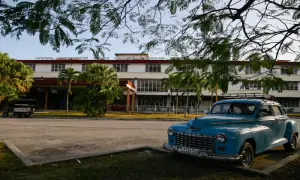








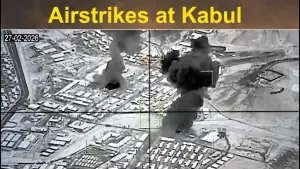
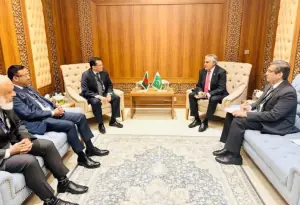
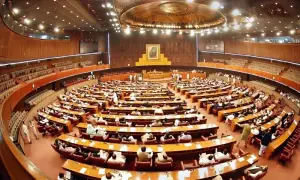
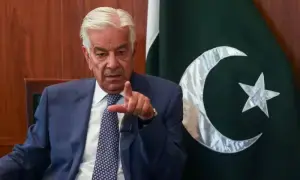
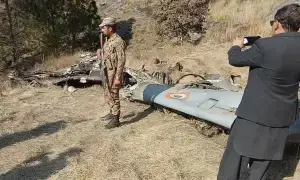
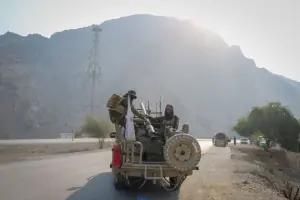
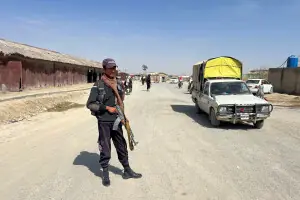
Comments are closed on this story.